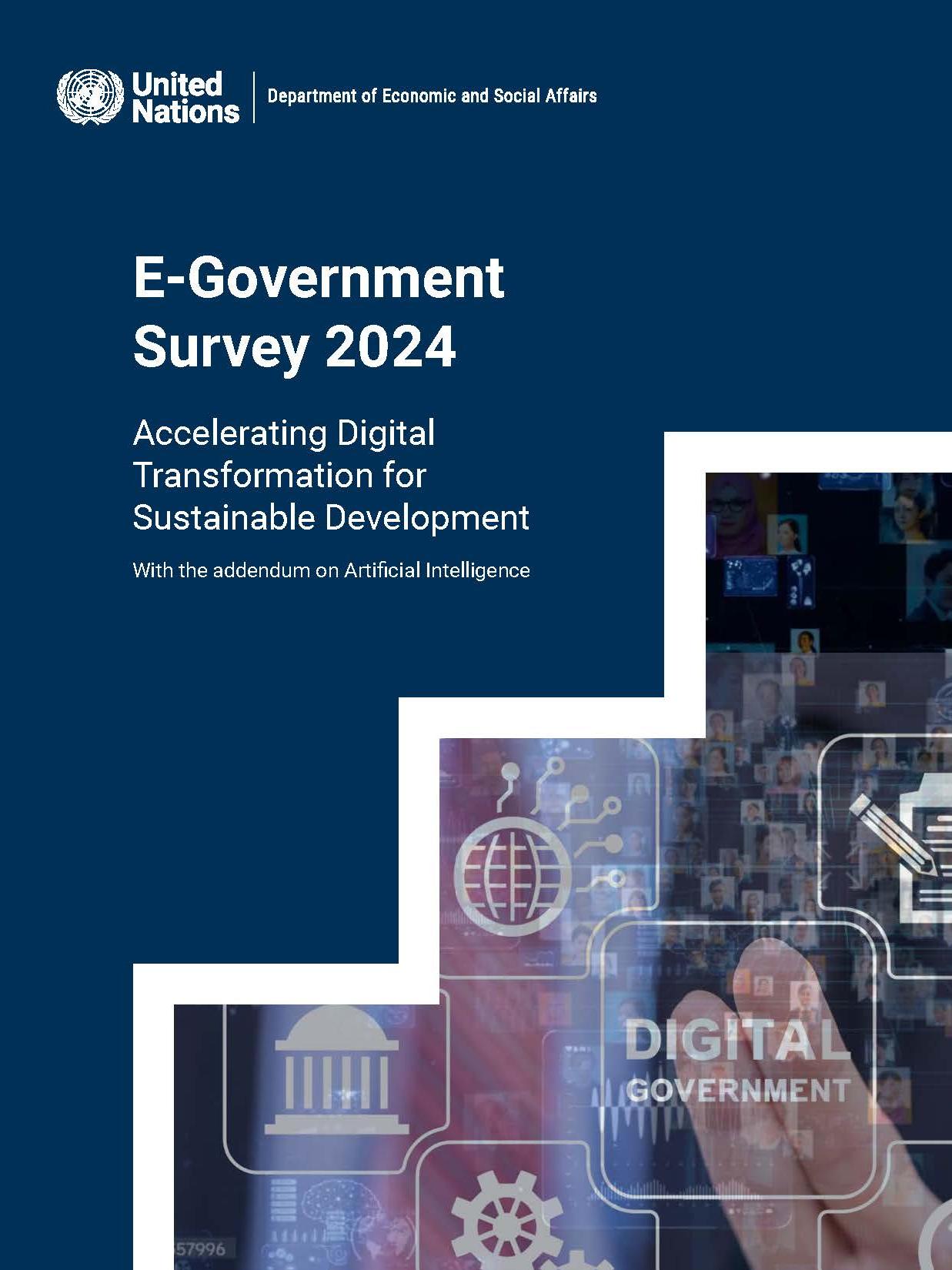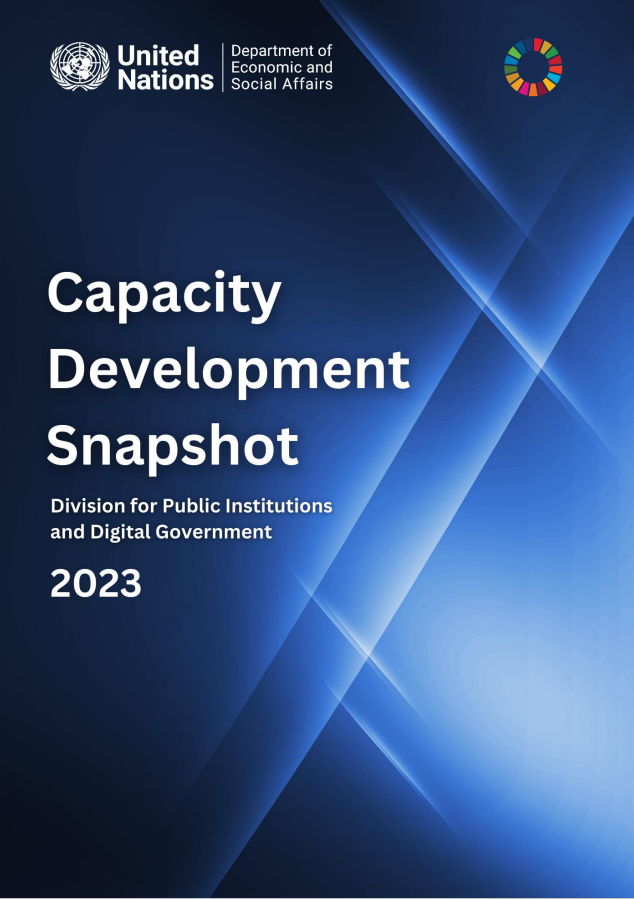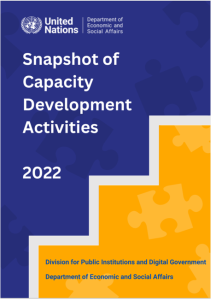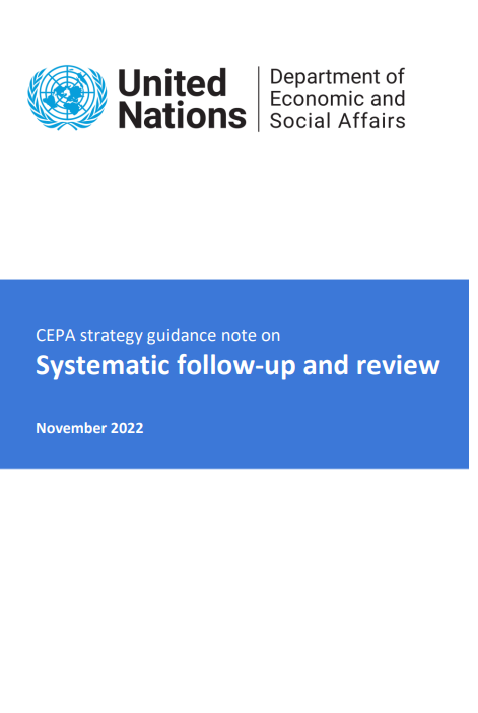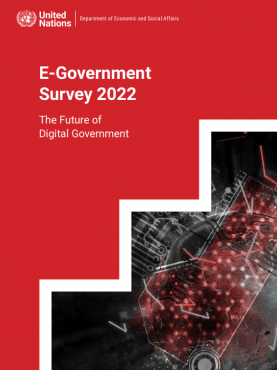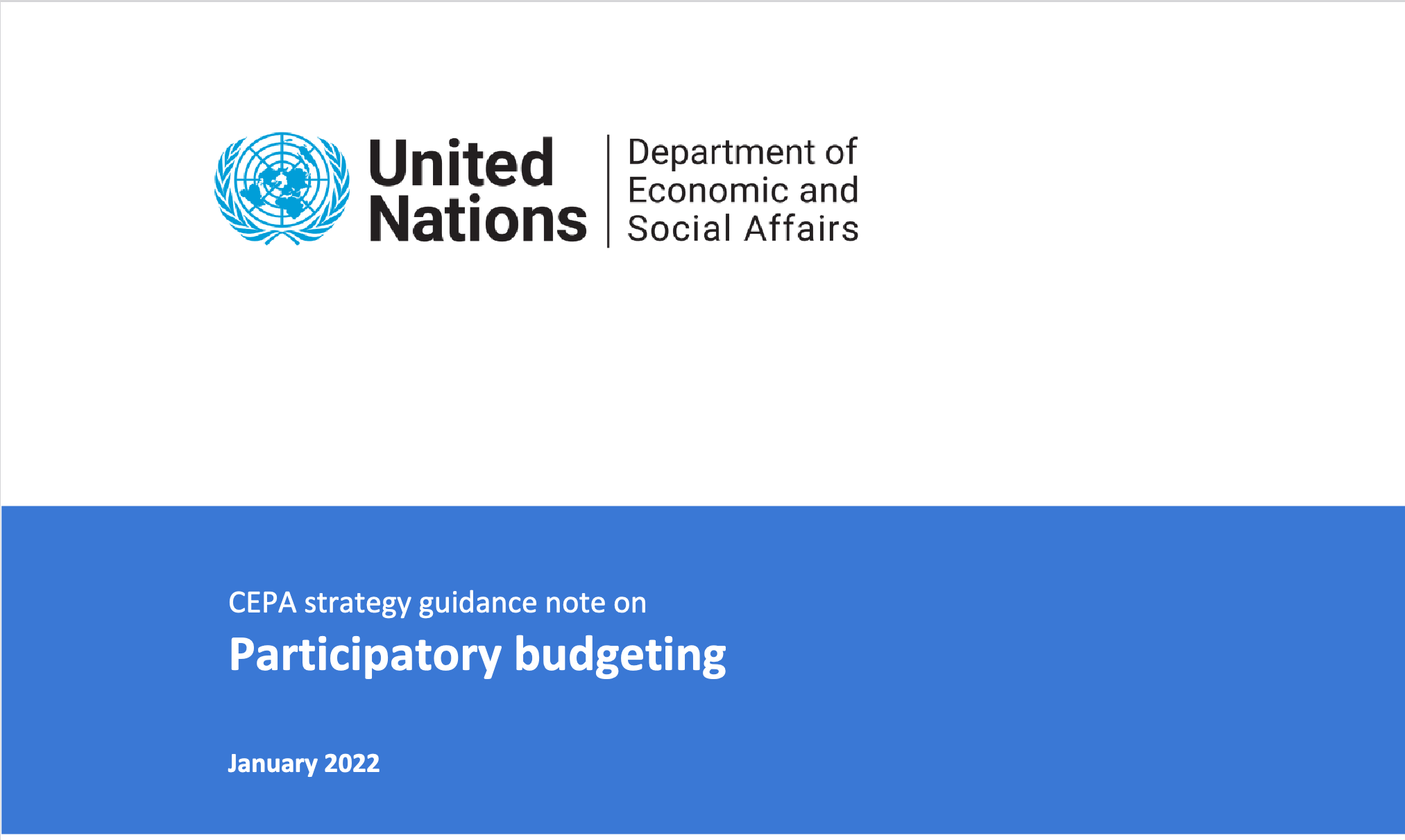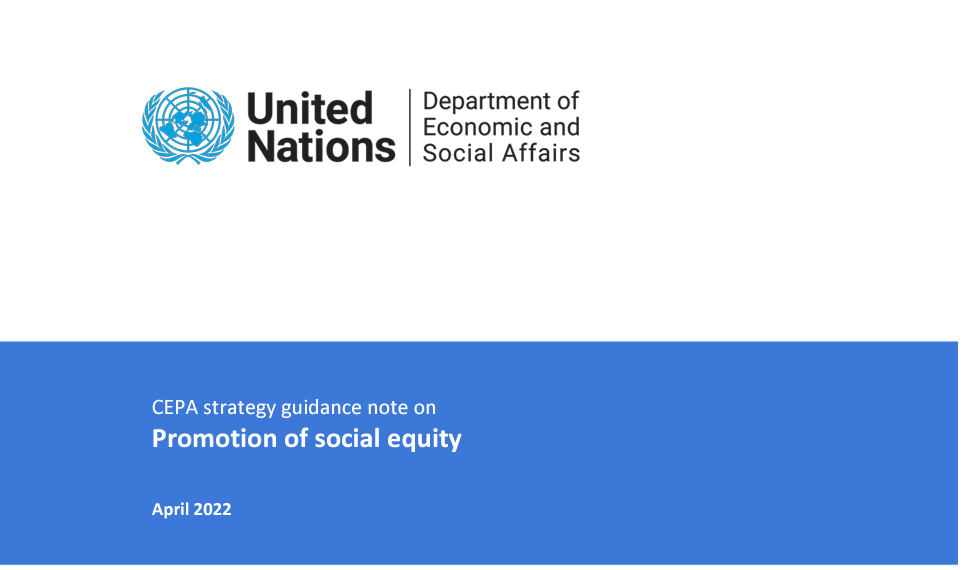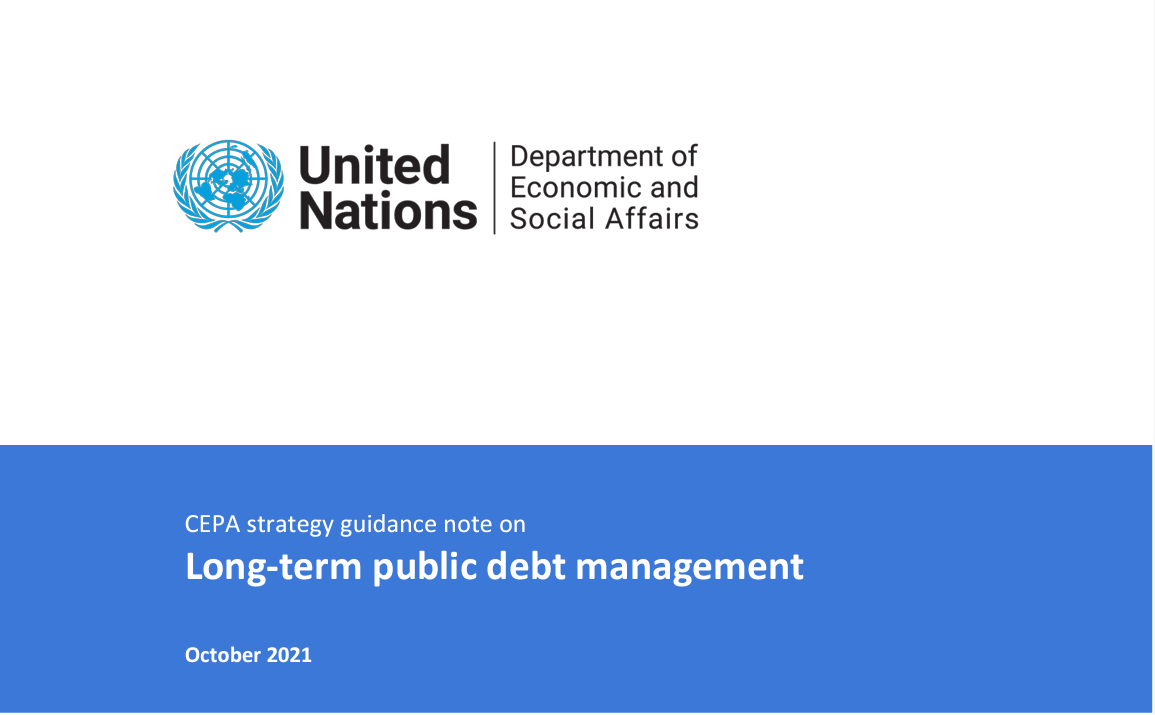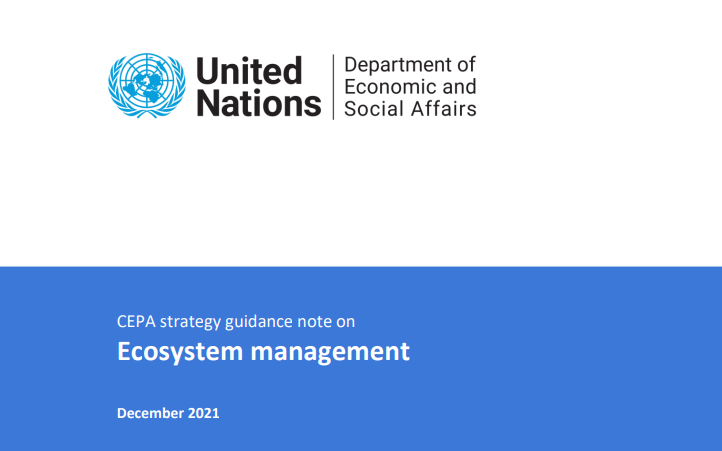| UN E-Government Surveys | Digital Government | Local Governance | Participation and Accountability | Public Institutions
UN E-Government Survey 2024
This thirteenth edition of the United Nations E-Government Survey, released in 2024, provides a comprehensive assessment of the digital government landscape across all 193 Member States. The 2024 Survey highlights a significant upward trend in the…
| Capacity Development Reports
Capacity Development Snapshot 2023
This report provides an overview of the capacity development activities that UN DESA’s Division for Public Institutions and Digital Government (DPIDG) conducted in 2023, including the substantive support provided to the reinvigorated UN Resident…
| Capacity Development Reports | Digital Government | Sound Policymaking | Local Governance | Open Government Data | Participation and Accountability | Principles of Effective Governance | Public Institutions | Public Service Innovation | Supreme Audit Institutions | Transformational Leadership and New Mindsets
Snapshot of Capacity Development Activities 2022
UN DESA’s Division for Public Institutions and Digital Government (DPIDG) provides capacity development support and policy advice to countries upon their request to strengthen governments’ capacities to translate the Sustainable Development Goals (…
| CEPA Strategy Guidance Notes | Principles of Effective Governance
CEPA strategy guidance note on systematic follow-up and review
UN DESA's work is supported by a growing series of strategy guidance notes on the many facets of effective governance for sustainable development which embody the knowledge and experience of hundreds of committed expert practitioners and academics…
| UN E-Government Surveys | Digital Government
UN E-Government Survey 2022
The United Nations E-Government Survey 2022 is the 12th edition of the United Nations’ assessment of the digital government landscape across all 193 Member States. The E-Government Survey is informed by over two decades of longitudinal research,…
| Capacity Development Reports | Transformational Leadership and New Mindsets
Outcome Report of the Peer-to-Peer Learning International Workshop
The Peer-to-Peer Learning International Workshop on Public Service Training Assessment Framework for Strengthening Capacities of Public Servants to Support SDG Implementation was held under the responsibility of Juwang Zhu, Director of the Division…
| CEPA Strategy Guidance Notes | Principles of Effective Governance
CEPA strategy guidance note on participatory budgeting
Participatory budgeting (PB) broadly refers to the many ways in which the general public is able to interact directly with government in the design and implementation of budgetary and…
| CEPA Strategy Guidance Notes | Principles of Effective Governance
CEPA strategy guidance note on promotion of social equity
The promotion of social equity is one of the strategies for leaving no one behind, and can be understood as fairness, justice and greater equality for all in society. Achieving equity relies on an active commitment to these aims through the…
| CEPA Strategy Guidance Notes | Principles of Effective Governance
CEPA strategy guidance note on long-term public debt management
This guidance note discusses the role of long-term public debt management as a strategy to promote sustainable development and intergenerational equity within the context of the 2030 Agenda.
| Capacity Development Reports | Digital Government | Public Service Innovation | Transformational Leadership and New Mindsets
Report on Innovation, Digital Government and Changing Mindset for Public Sector Transformation in Guyana to Achieve the SDG
The Report highlights the key concepts and recommendations that emerged from the Training Workshop on “Innovation, Digital Government and Changing Mindset for Public Sector Transformation in Guyana to Achieve the SDGs” organized by the United…
| Capacity Development Reports | Sound Policymaking | Public Institutions
Report on Resilience and Recovery from Covid-19 Through Sound Policymaking
This report summarizes the key highlights and messages that were conveyed by the facilitators, speakers, and participants during the Regional Webinar Series on “How to Promote Resilience and Recovery from the COVID-19 Pandemic in Africa through…
| CEPA Strategy Guidance Notes | Principles of Effective Governance
CEPA strategy guidance note on ecosystem management
Ecosystem management involves using ecological knowledge about a particular ecosystem’s structure and function to achieve a desired set of objectives. By setting and working toward appropriate objectives that are grounded in sustainability,…
 欢迎来到联合国,您的世界!
欢迎来到联合国,您的世界!
